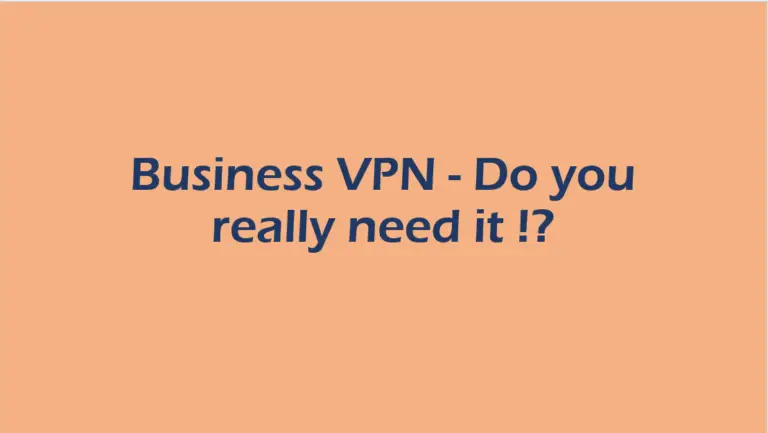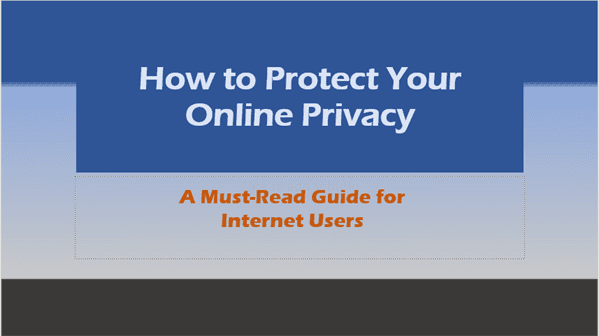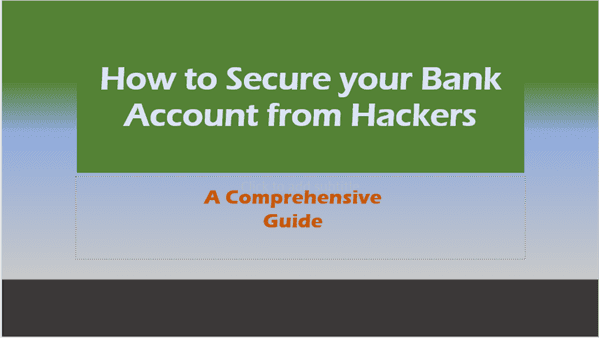The Ultimate Guide to VPN for Online Banking Security: Why It’s a Game-Changer in 2024
VPN for Online Banking Security
Imagine logging into your online bank only to realise someone’s gained access to your banking details. Scary, right? In today’s world of cyber threats, using a VPN for online banking isn’t just an option—it’s a necessity.
But what exactly makes a VPN for online banking security such a powerful tool? And how can you ensure you’re using it the right way?
Let’s uncover the answers.
Why This Matters:
If you’re not using a VPN to protect your online bank transactions, your private information is at risk. Hackers are smarter than ever, and the lack of a secure connection can expose your IP address and confidential data to cybercriminals. Stick around—this guide will show you how to safeguard your financial life.
Outline of the Article – VPN for Online Banking Security
1. What is a VPN, and How Does It Work?
- Definition of a VPN.
- How it encrypts your data.
- Role of a VPN server in protecting your IP address.
2. Why Do You Need a VPN for Online Banking?
- Threats of banking online without a VPN.
- Examples of risks: phishing, identity theft, and data breaches.
- Importance of safe online banking in 2024.
3. What Makes a VPN Safe for Online Banking?
- Security features to look for.
- Why dedicated VPN servers matter.
- Avoiding free VPNs and choosing a secure VPN.
4. How to Choose the Best VPN for Online Banking
- Comparison of top VPN services.
- Factors to consider: encryption, speed, and privacy policies.
- Importance of vpn provider transparency.
5. Can You Use a Free VPN for Online Banking?
- Risks of free VPNs: data logging and limited security.
- Safer alternatives for budget-conscious users.
- Why free VPN for online banking might not cut it.
6. Setting Up a VPN for Banking
- Step-by-step guide.
- Tips for beginners using VPN apps.
- Ensuring a secure VPN connection every time.
7. Best VPNs for Online Banking in 2024
- List of best VPN services tailored for banking.
- Pros and cons of each.
- Key takeaways for safely accessing online banking.
8. Can a VPN Confuse Your Bank’s Security Processes?
- Addressing concerns about VPNs and banking.
- Tips to avoid account suspensions.
9. How VPNs Safeguard Mobile Banking Apps
- Role of VPNs in securing mobile banking apps.
- Protecting your bank details on the go.
10. FAQs About VPN for Online Banking
- Is it safe to use a VPN for banking?
- Can I access my online bank without a VPN?
- What is the best VPN for banking?
1. What is a VPN, and How Does It Work?

A VPN, or Virtual Private Network, is like a secure tunnel for your online activities. When you connect to a VPN server, it encrypts your data, masking your IP address and hiding your online identity from prying eyes.
For online banking, this encryption ensures your sensitive information, like passwords and bank details, stays private. Hackers and even your internet service provider can’t access your activity, making it a game-changer for online banking safety. For a more detailed breakdown of how VPNs function, check out What is VPN and How Does it Work?.
2. Why Do You Need a VPN for Online Banking?

Banking online without a VPN leaves you exposed to numerous risks. Cybercriminals can intercept your data, steal your credentials, and even gain access to your banking information. The stakes are high when dealing with online banking transactions.
A VPN provides an extra layer of security by encrypting your connection and preventing unauthorised access. If you value your privacy and financial well-being, you need a VPN. Alongside using a VPN, here are tips on how to secure your bank account from hackers to stay one step ahead of cybercriminals.
3. What Makes a VPN Safe for Online Banking?
Not all VPNs are created equal. To ensure secure online banking, look for these features:
- AES-256 encryption: The gold standard for data protection.
- No-log policy: Ensures your information isn’t stored or sold.
- Dedicated servers: Ideal for bypassing geo-restrictions and ensuring speed.
Avoid free VPNs. While tempting, they often lack robust security features and may even log your data for profit.
4. How to Choose the Best VPN for Online Banking
When picking a VPN, consider the following:
- Encryption: Ensure it uses top-tier encryption.
- Speed: Lagging connections can disrupt your online activities.
- Privacy: A transparent VPN provider is crucial.
Top recommendations include NordVPN, ExpressVPN, and Surfshark—all known for their reliability and strong banking security features. If you’re looking for cost-effective solutions, check out these affordable VPNs for small businesses that also cater to individuals.
5. Can You Use a Free VPN for Online Banking?
It might be tempting to use a free VPN, but it’s not worth the risk. Free VPNs often have:
- Weak encryption.
- Limited bandwidth.
- A tendency to log and sell your data.
Invest in a premium VPN to keep your connection safe and secure. It’s a small price to pay for peace of mind.
6. Setting Up a VPN for Banking
Here’s how to get started:
- Choose a reputable VPN.
- Download and install the app.
- Connect to a server close to your location for optimal speed.
- Log in to your online bank securely.
Pro tip: Always verify that your VPN connection is active before accessing sensitive sites.
7. Best VPNs for Online Banking in 2024
Here are the top picks:
- NordVPN: Offers double encryption and fast servers.
- ExpressVPN: Known for its no-log policy and user-friendly interface.
- Surfshark: Affordable with great security features.
Each of these services ensures you can safely access online banking without compromising speed or security. For an in-depth analysis, read our Surfshark VPN review to understand its security features and benefits.
8. Can a VPN Confuse Your Bank’s Security Processes?
Some banks may flag unusual login attempts when using a VPN. To avoid issues:
- Connect to a server in your home country.
- Use the same IP address for repeated logins.
This prevents you from triggering your bank’s security processes, ensuring smooth access.
9. How VPNs Safeguard Mobile Banking Apps

Mobile banking apps are convenient but vulnerable. A VPN:
- Encrypts your connection on public Wi-Fi.
- Masks your IP address to prevent tracking.
- Keeps your banking apps safe from cyber threats.
For frequent mobile users, a secure VPN is a must-have. If you work remotely, securing your connection is even more critical. Here’s how a VPN for remote work security can protect your sensitive data.
10. FAQs About VPN for Online Banking
Q: Is it safe to use a VPN for banking?
A: Yes, as long as you choose a reputable VPN with strong encryption.
Q: Can I access my online bank without a VPN?
A: Technically, yes, but it’s not recommended for safe online banking.
Q: What is the best VPN for banking?
A: NordVPN, ExpressVPN, and Surfshark are top-rated for banking security.
Worried about privacy? Learn whether your ISP can track your activity with a VPN in this guide: Can My ISP See What Sites I Visit With VPN?.
Key Takeaways: How to Safeguard Your Online Banking
- Always use a VPN for banking online.
- Avoid free VPNs; invest in a premium VPN.
- Look for features like strong encryption, no-log policies, and fast servers.
- Verify your VPN connection before accessing sensitive data.
- Choose a VPN like NordVPN or ExpressVPN for the best experience.
By following these steps, you’ll ensure your online banking is safe and secure in 2024.
FAQs – VPN for Online Banking Security
Will a VPN protect my online banking?
Yes, a VPN encrypts your internet connection, making it significantly harder for hackers to intercept your data. NordVPN explains that a VPN creates an encrypted tunnel for your data, protecting your login credentials, financial transactions, and IP address, even on unsecured networks like public Wi-Fi.
Source: NordVPN
Which VPN is best for secure banking?
Top-rated VPNs like NordVPN, ExpressVPN, and Surfshark are widely recommended for secure online banking due to their robust encryption (AES-256), no-logs policy, and fast, reliable connections. According to Surfshark, banking-grade encryption ensures secure transactions and shields your sensitive data.
Source: Surfshark VPN
Is it safe to do banking on public Wi-Fi with VPN?
Yes, a VPN makes it safer to use public Wi-Fi for online banking. ExpressVPN notes that public Wi-Fi networks are notorious for vulnerabilities, but a VPN encrypts your data, preventing cybercriminals from spying on your banking activities. However, always verify the VPN connection is active before logging in.
Source: ExpressVPN
How do I make sure my online banking is secure?
To ensure secure online banking:
Use a reputable VPN to encrypt your connection.
Enable two-factor authentication (2FA) on your bank account.
Avoid public Wi-Fi unless you use a VPN.
Regularly update your devices and apps.
Monitor your transactions for suspicious activity.
NordVPN highlights that combining these steps with a VPN ensures robust online banking security.
Source: NordVPN






